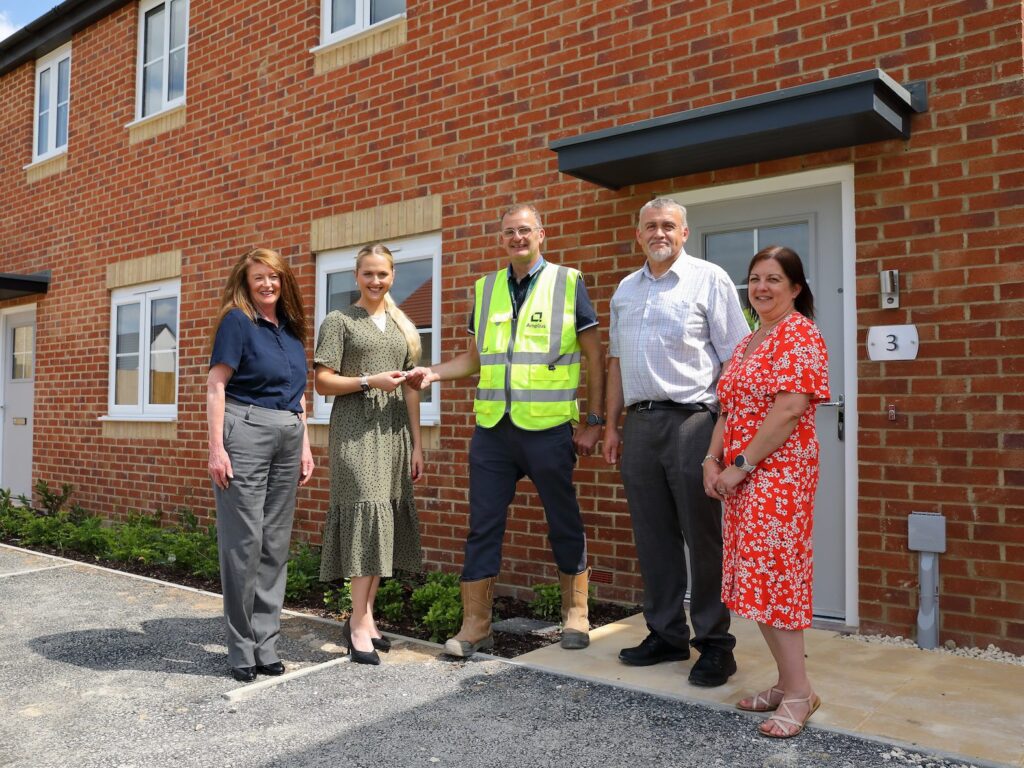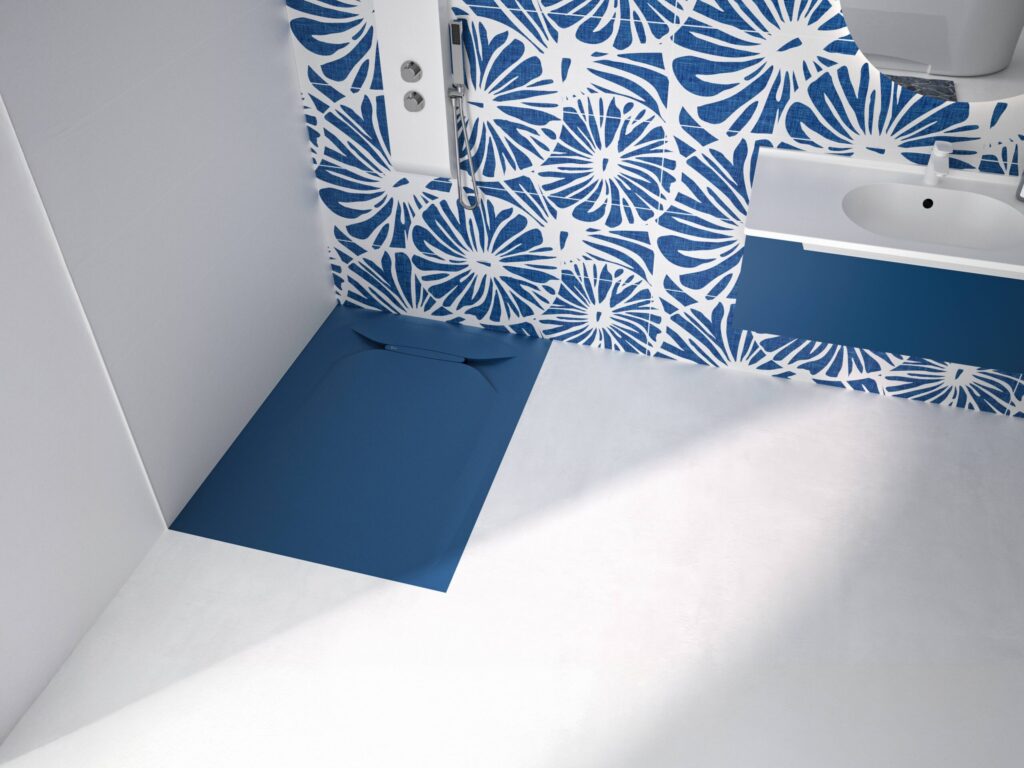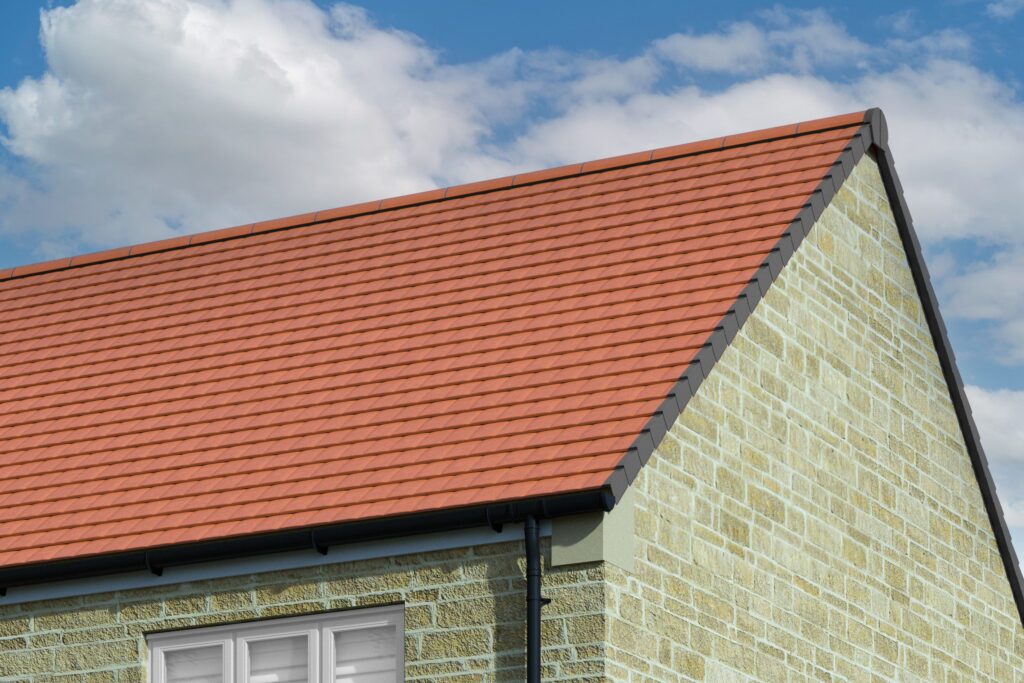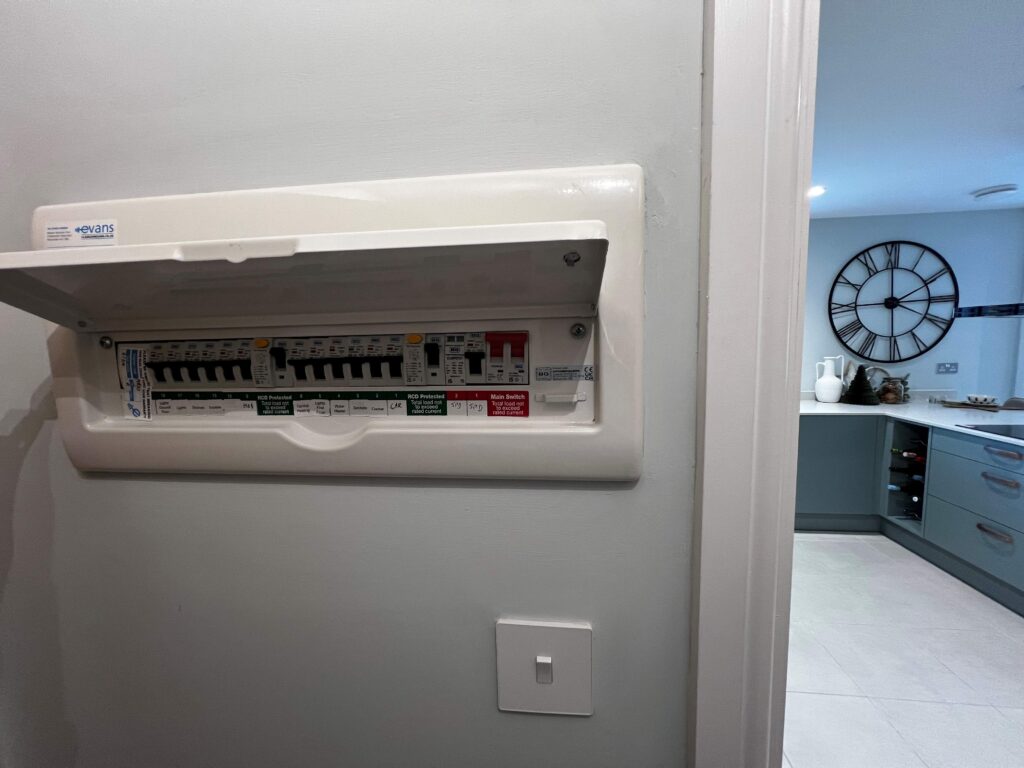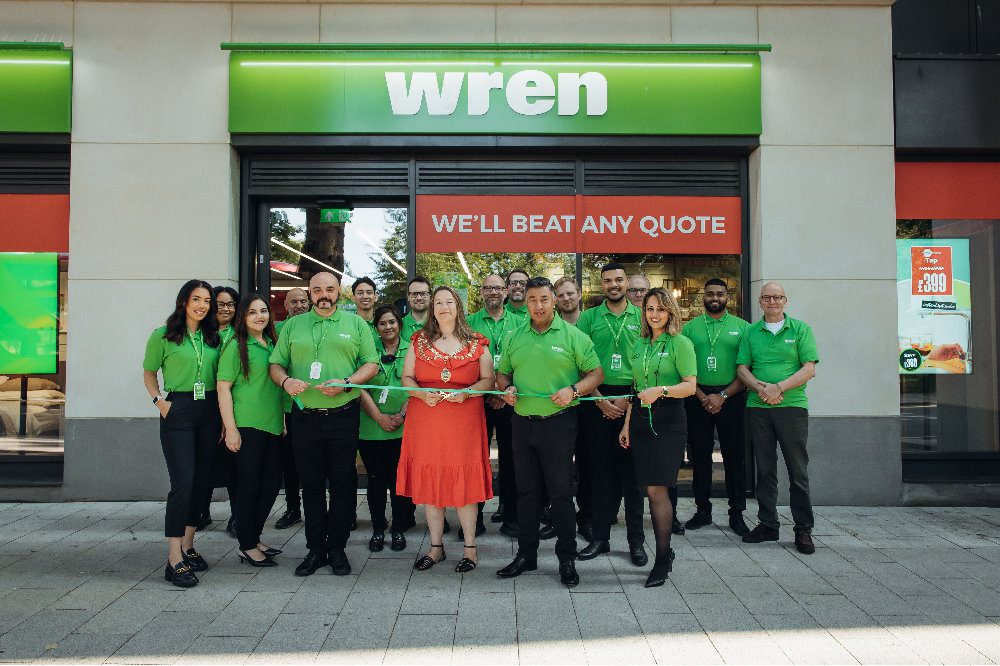GROHE, a leading global brand for complete bathroom solutions and kitchen fittings, has received the silver certificate from the German Sustainable Building Council (DGNB) in Munich, Germany. GROHE has been awarded by the DGNB following prudent investment in its production site in Klaeng, Thailand.
Expansion of the factory building in 2017 has resulted in achieving its status as the most sustainable production plant of its kind
in Southeast Asia.
The awards ceremony was celebrated at BAU, the world’s leading trade fair for architecture, materials and systems, and also marked the tenth anniversary of DGNB’s awards scheme, which recognises particularly sustainable residential projects.
GROHE set its sights on DGNB certification during the design phase of the Thailand site
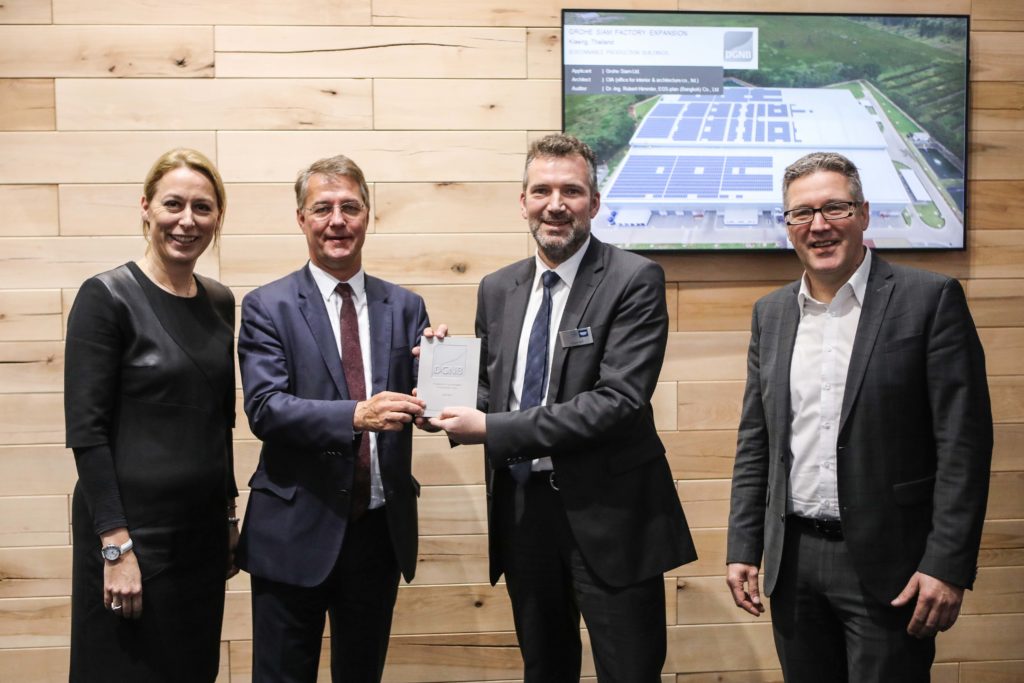
In order to receive the DGNB silver certificate, GROHE had already decided to incorporate various sustainability measures whilst planning the expansion.
The project was designed and directed by the architecture office OIA (Office for Interior & Architecture) in an integrated collaboration with the energy and climate consultancy EGS-plan (Bangkok) Co., Ltd. who also managed the certification process.
The climate concept, for example, includes thermal insulation in the roof to reduce long-wave radiation and improve thermal comfort in the factory, which does not use air conditioning.
GROHE also applies natural ventilation: the pressure differences between the building’s air supply and exhaust air openings allow a continuous change of air, keeping the production room’s temperature at a comfortable level. As a result, GROHE does not need energy-intensive air conditioning.
Photovoltaic-System Reduces CO2 Emissions
Photovoltaic panels are installed on the roof of the 12,000 square metre factory building, reducing CO2 emissions by around 1,000 tonnes per year.
Meanwhile, when it comes to waste water, high standards apply as well. The domestic waste water is biologically treated to meet the quality of shower water, so it can be reused for irrigation and flushing. Another sustainability feature of the production site is its green resting areas
inside and outside the plant.
“GROHE comprehensively incorporates sustainability measures, including the construction of new production plants. The DGNB silver certificate is an impressive proof of this”, said Thomas Fuhr, Executive Director of Operations at GROHE and board member responsible for sustainability.
“The DGNB certificate acknowledges the successful balance between the high economical, ecological, socio-cultural and functional quality of a building.
“I am pleased that our GROHE site fulfils these parameters and is now evidently the most sustainable plant of its kind in Southeast Asia.”
For many decades, GROHE, the global brand for innovative sanitary products, has applied the brand values of quality, technology, design and sustainability, making the pursuit of the greatest possible level of sustainability an integral part of its corporate DNA.
GROHE consistently operates using a 360-degree sustainability approach
that encompasses the fields of action of employees, suppliers, plants, processes, products and the contribution to society in equal measure.
The global sanitary brand also follows the 17 Sustainable Development Goals (SDGs) of the United Nations. These include, for example, the availability and sustainable management of water and sanitation (SDG 6).







